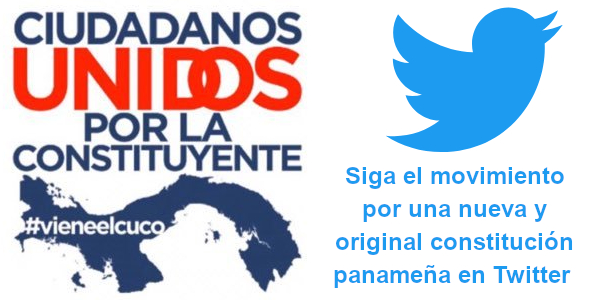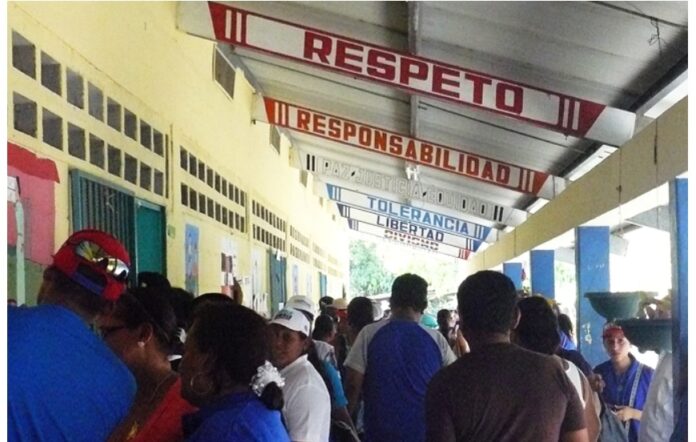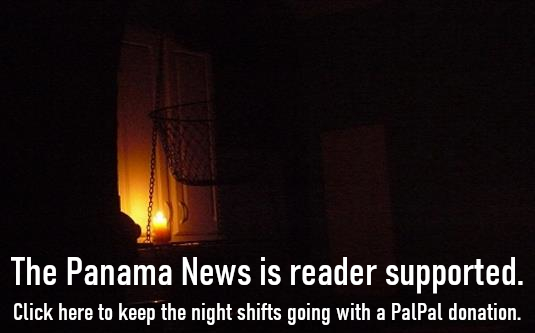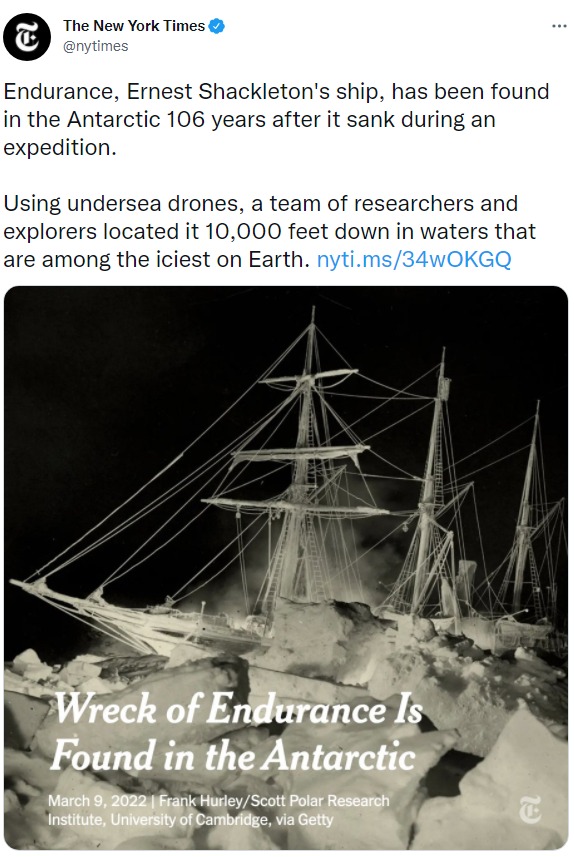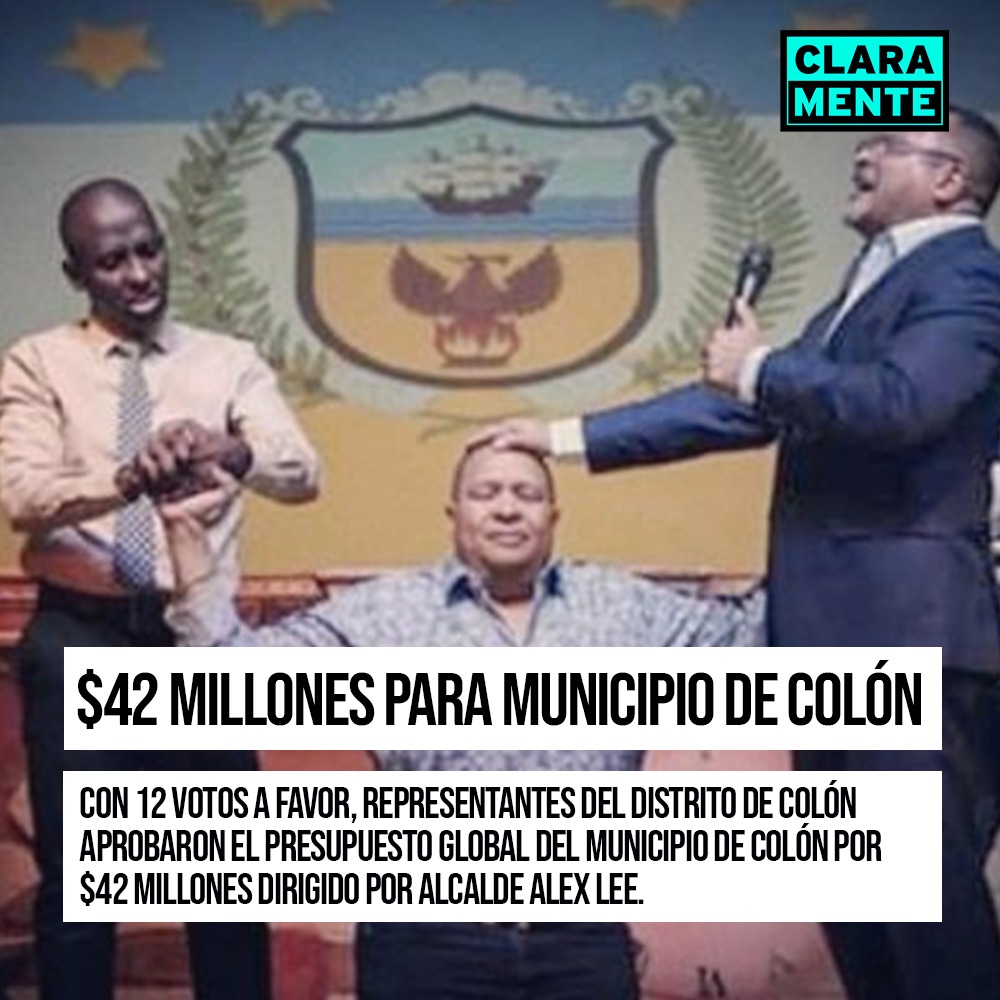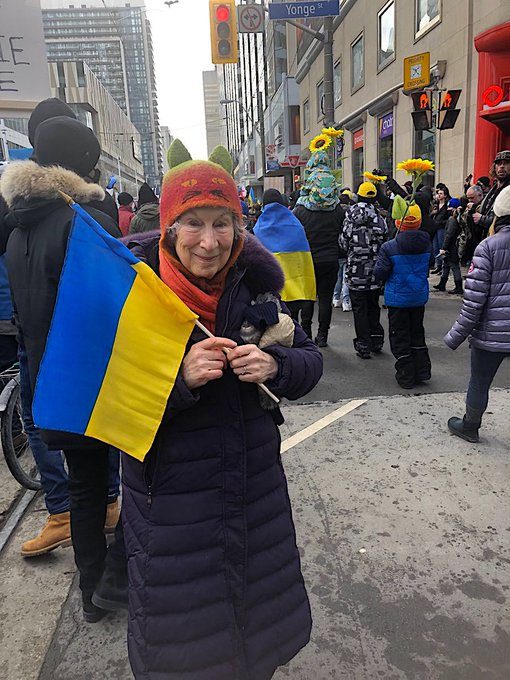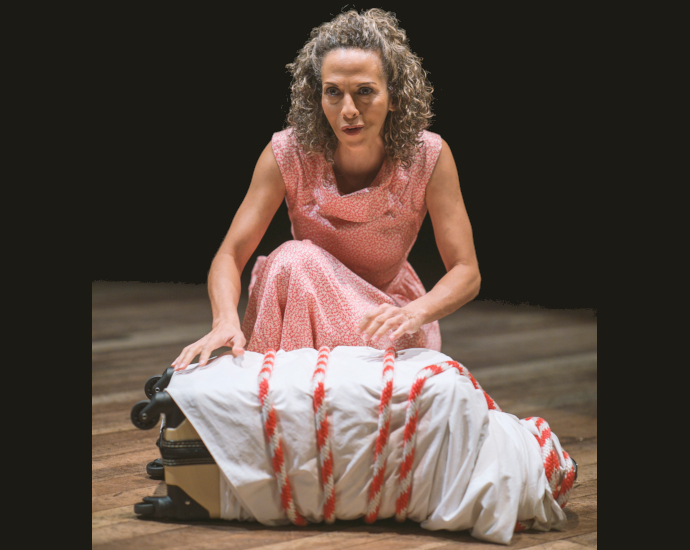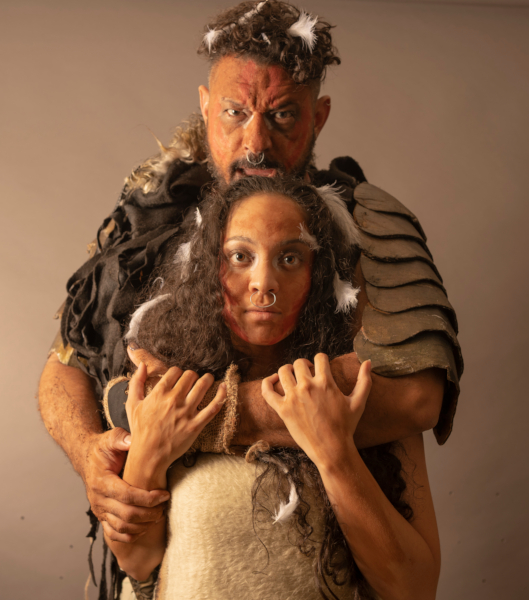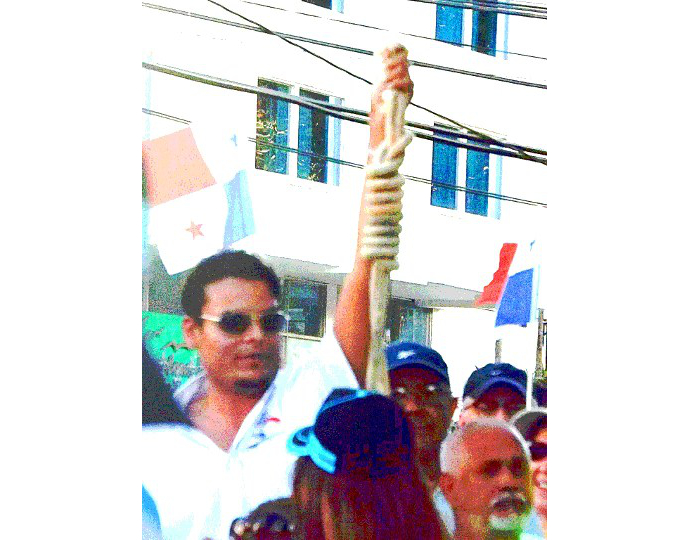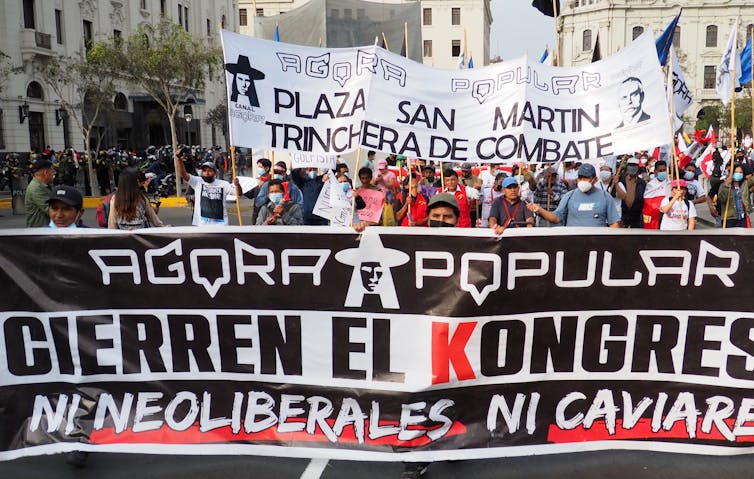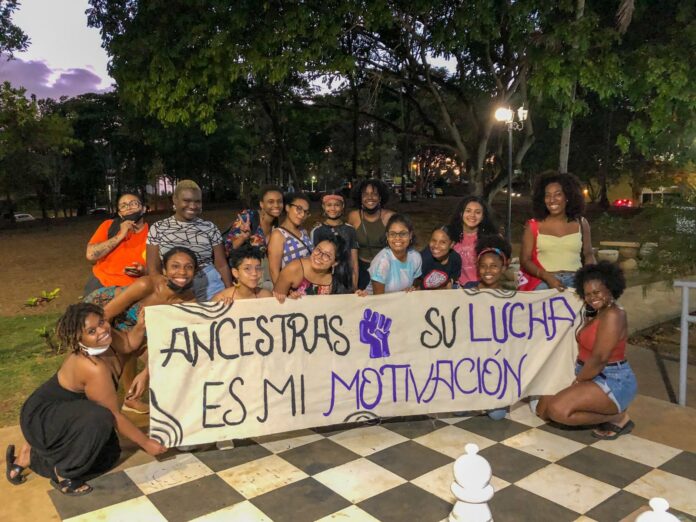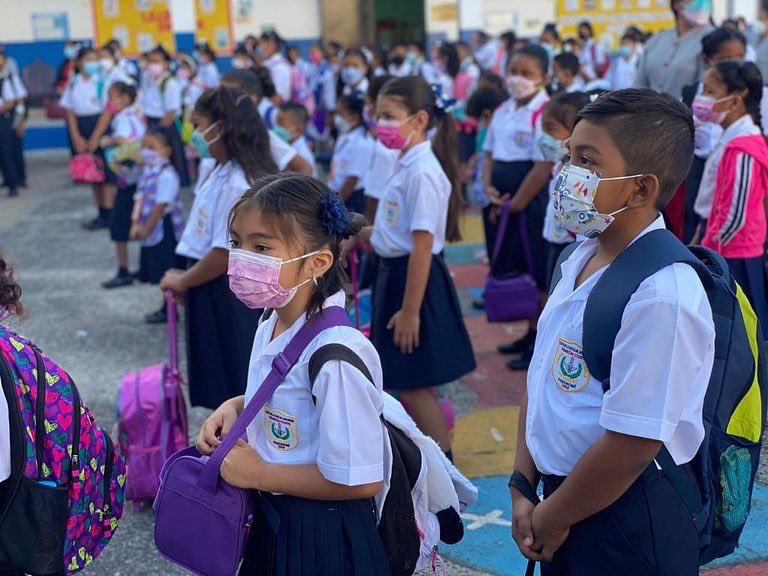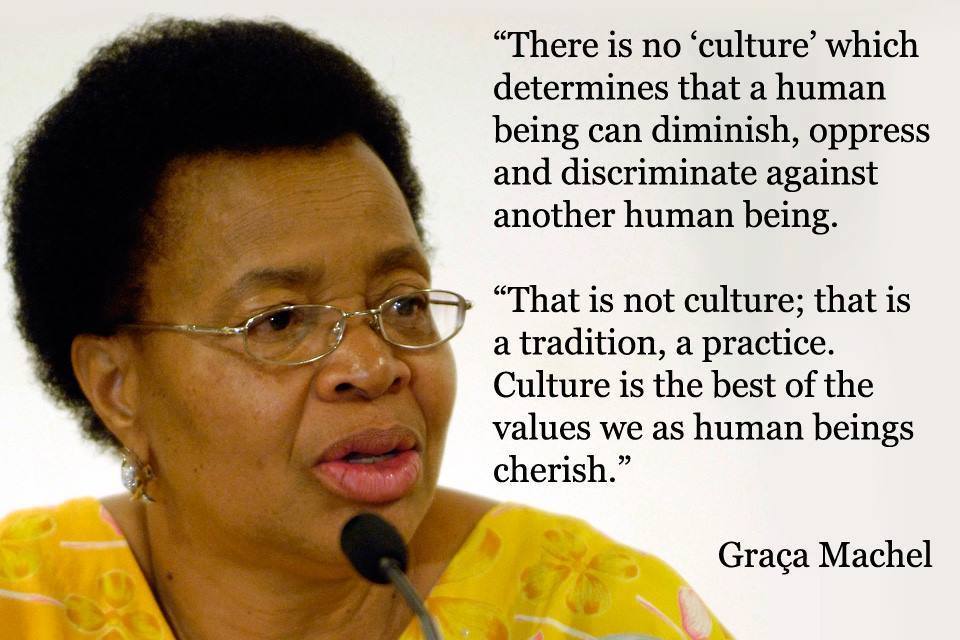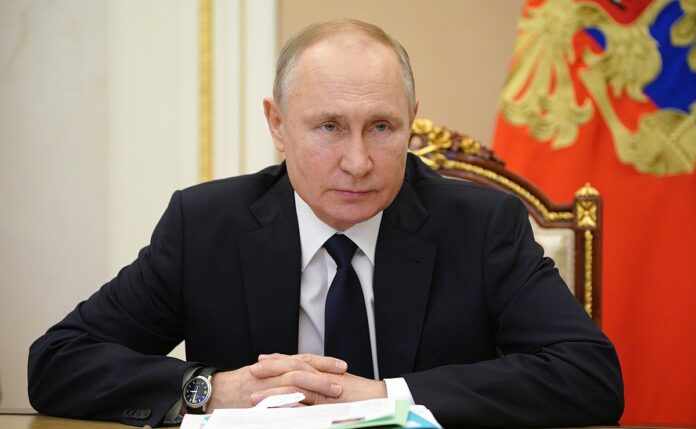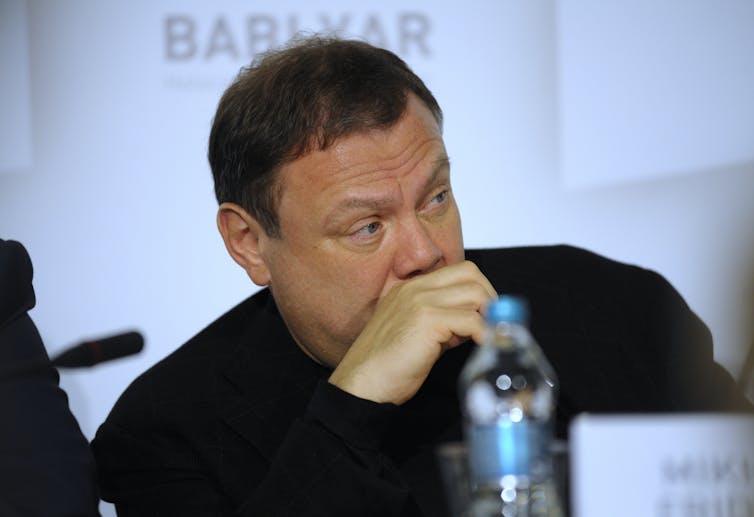If your Spanish is not that good, use Google Translate to get the gist of the text below.
Primer discurso en el Palacio de La Moneda del Presidente Gabriel Boric Font
Chilenas y chilenos, habitantes de nuestra patria, pueblo de Chile:
Esta tarde, por primera vez, les hablo como Presidente de la República, Presidente de todas y todos los que habitamos este país que tanto queremos y cuánto queremos a Chile, que ha sufrido tanto y qué tantas alegrías nos ha dado.
Gracias infinitas por darme este honor a ustedes, a quienes nos están viendo en sus casas a lo largo y ancho de todo nuestro país. También, a mi familia incondicional, a nuestro Gabinete, nuestros equipos y, también, personalmente a Irina.
Este Chile hecho de diversos pueblos y naciones, instalado en una cornisa del continente entre las cordilleras imponentes y su océano mágico, entre el desierto de vida y los hielos antárticos, enriquecido y transformado por el trabajo de su pueblo.
Es este Chile que solo en un puñado de años, y ustedes lo han vivido, ha debido atravesar terremotos, catástrofes, crisis, convulsiones y una pandemia mundial y violaciones a los derechos humanos que nunca más se repetirán en nuestro país. Pero en el que siempre, siempre nos sacudimos el polvo, nos secamos las lágrimas, ensayamos juntos una sonrisa, nos arremangamos y seguimos, chilenas y chilenos, siempre seguimos.
La emoción qué he sentido hoy día al atravesar la Plaza de la Constitución y entrar a este Palacio de La Moneda, es profunda y necesito, existencialmente necesito compartirla con ustedes. Son parte protagónica de este proceso, el pueblo de Chile es protagónico en este proceso, no estaríamos aquí sin las movilizaciones de ustedes.
Y quiero que sepan que no llegamos aquí solo para llenar cargos y solazarnos entre nosotros, para generar distancias inalcanzables, llegamos aquí para entregarnos en cuerpo y alma al compromiso de hacer mejor la vida en nuestra patria.
Quiero decirles, compatriotas, que he visto sus caras recorriendo nuestro país, las de las personas mayores cuya pensión no les alcanza para vivir porque algunos decidieron hacer de la previsión un negocio.
Las de quienes se enferman y sus familias no tienen cómo costearle los tratamientos. Cuántos de ustedes nos han hablado, nos hemos mirado a los ojos.
Las de los estudiantes endeudados, las de las y los campesinos sin agua por sequía y por saqueo.
Las de las mujeres que cuidan a sus niños con TEA que en cada lugar de Chile me las encuentro. A sus familiares postrados, a sus bebés indefensos.
Las de las familias que siguen buscando a sus detenidos desaparecidos qué no dejaremos de buscar.
Las de las disidencias y diversidades de género que han sido discriminadas y excluidas por tanto tiempo.
Las de los artistas que no pueden vivir de su trabajo porque la cultura no es lo suficientemente valorada en nuestro país.
Las de las dirigentas sociales que luchan por el derecho a una vivienda digna en las poblaciones de Chile.
Las de los pueblos originarios despojados de su tierra, pero nunca, nunca de su historia.
Las de la clase media acogotada, las de los niños y niñas del Sename, nunca más, nunca más, las caras de las zonas más aisladas de nuestro país como el Magallanes de dónde vengo, las de quiénes viven en la pobreza olvidada.
Con ustedes es nuestro compromiso.
Hoy iniciamos un período de grandes desafíos, de inmensa responsabilidad, pero no partimos de cero, no partimos de cero. Chile tiene una larga historia y hoy día este día nos inserta en esa historia larga de nuestra República.
Iniciar mi mandato como Presidente Constitucional de la República de Chile es hacerme parte, hacernos parte de una historia que nos excede a todos, pero que al mismo tiempo le da forma, le da sentido y dirección a nuestra mirada.
Por aquí pasaron antes que nosotros miles de personas que hicieron posible la expansión de la educación pública, el reconocimiento progresivo de los derechos de las mujeres y las disidencias en el país y en la casa, la democratización del país, el reconocimiento de los derechos sociales.
Por aquí, en este lugar desde donde hoy les hablo, pasó Balmaceda y su dignidad chilena, Pedro Aguirre Cerda y su “gobernar es educar” citando a Valentín Letelier.
Por acá pasó también Eduardo Frei Montalva y la promoción popular, el compañero Salvador Allende y la nacionalización del Cobre, Patricio Aylwin y la recuperación de la democracia, Michelle Bachelet abriendo caminos inexplorados con la protección social.
Aquí se escuchan también los ecos de quienes anónimamente se han levantado contra la opresión, defendiendo los derechos humanos, exigiendo verdad, justicia, reparación y garantías de no repetición.
Por acá resuena el clamor feminista y su lucha por la igualdad.
Y algunos se acordarán también de las 1.800 horas corriendo alrededor de La Moneda por la educación.
Pero estas paredes también han sido testigos del horror de un pasado de violencia y opresión que no hemos olvidado y no olvidaremos. Por donde hablamos hoy, ayer entraban cohetes y eso nunca más se puede volver a repetir en nuestra historia.
Este Palacio, esta Plaza, esta ciudad, este país tienen historia y a esa historia también nos debemos. Hoy, en esta jornada tan importante en el difícil, difícil camino de los cambios que la ciudadanía decidió echar a andar en unidad, repito, importante, en unidad, vienen a mi mente y a mi corazón los días en que, junto a muchos de los aquí presentes, y seguramente quienes nos están viendo en sus casas también, marchábamos juntos por un futuro digno.
¿Hacia dónde marchábamos, compatriotas? ¿hacia dónde marchábamos?
No va a ser este Gobierno el fin de esa marcha, vamos a seguir andando y el camino, sin duda, va a ser largo y difícil, pero hoy los sueños de millones de personas están acá empujándonos, dándonos sentido para llevar a buen puerto los cambios que la sociedad demanda.
Chilenas y chilenos:
Mi sueño es que cuando terminemos nuestro mandato, y hablo en plural porque esto no es algo individual, esto no se trata de mí, esto se trata del mandato que el pueblo nos diera a este proyecto colectivo, cuando terminemos este mandato podamos mirar a nuestros hijos, a nuestras hermanas, a nuestros padres, a nuestras vecinas, a nuestros abuelos y sintamos que hay un país que nos protege, que nos acoge, que nos cuida, que garantiza derechos y retribuye con justicia el aporte y el sacrificio que cada uno de ustedes, de los habitantes de nuestra patria, hacen para el desarrollo de nuestra sociedad.
Quisiera, compatriotas y en los ejemplos uno siempre se queda corto, pero quisiera, compatriotas, qué la gente de Puchuncaví y de Coronel puedan mirar hacia el futuro y saber que sus hijos no van a crecer rodeados de contaminación, algo tan básico.
Que la gente, los trabajadores de Lota no van a seguir viviendo en la pobreza.
Que las comunidades de algueras y pescadores artesanales de la provincia de Cardenal Caro podrán seguir desarrollando sus actividades tradicionales.
Que los niños y niñas de Alto Hospicio, allá arriba, sepan que ellos también van a poder acceder a una vivienda digna.
Que los vecinos y vecinas de Antofagasta, de Maipú, de Hualpén sientan tranquilidad al volver de sus trabajos y tengan tiempo para vivir junto a sus familias. Por eso impulsaremos, como hemos comprometido, las 40 horas.
Que los jóvenes de Juan Fernández, ese lugar aislado, insular van a poder tener un colegio digno para estudiar.
Sabemos, compatriotas, que el cumplimiento de nuestras metas no será fácil, que enfrentaremos crisis externas e internas, que cometeremos errores y que esos errores los deberemos enmendar con humildad, escuchando siempre a quienes piensan distinto y apoyándonos en el pueblo de Chile.
Quiero decirles que vamos a vivir tiempos desafiantes y tremendamente complejos. La pandemia sigue su curso, con un saldo de dolor y pérdida de vidas que nos va a acompañar por mucho tiempo, seguramente todos ustedes conocen a alguien que ha partido producto de la pandemia.
Pensemos, pensemos por un segundo, por un segundo en quiénes se han ido y quienes nos han dejado, pensemos en el dolor que tiene cada familia en su intimidad por quién ha partido y no volverá. Tenemos que abrazarnos como sociedad, volver a querernos, volver a sonreír, esto más allá de discursos y más allá de lo que está escrito, qué importante, qué diferente es cuando en un pueblo nos queremos, nos cuidamos entre nosotros, no desconfiamos el uno del otro, sino que nosapoyamos. Le preguntamos a nuestro vecino cómo ésta, apoyamos al trabajador de al lado, nos queremos, salimos adelante juntos y juntas. Eso es lo que tenemos que construir, compatriotas.
Sabemos también que la economía sigue resentida y que el país necesita ponerse de pie, crecer y repartir de manera justa los frutos de este crecimiento, porque cuando no hay distribución de la riqueza, cuando la riqueza se concentra solo en unos pocos, la paga es muy difícil. Necesitamos redistribuir la riqueza que producen los chilenos y chilenas, que producen quiénes habitan nuestra patria.
Sabemos que a todas estas dificultades se suma, además, un contexto internacional marcado por la violencia en muchos lugares del mundo y hoy también por la guerra. Y en esto quiero ser muy claro, Chile, nuestro país, promoverá siempre el respeto de los Derechos Humanos, en todo lugar y sin importar el color del gobierno que los vulnere.
Desde Chile, en nuestra América Latina, porque somos profundamente latinoamericanos y basta de mirar con distancia a nuestros países vecinos, somos profundamente latinoamericanos y un saludo a nuestros pueblos hermanos, desde aquí, desde este continente haremos esfuerzos para que la voz del sur se vuelva a escuchar firme en un mundo cambiante.
Son tantos los desafíos, la emergencia climática, los procesos migratorios, la globalización económica, la crisis energética, la violencia permanente contra las mujeres y disidencias. Tenemos que trabajar juntos con nuestros pueblos hermanos, como lo conversábamos hoy día con Presidentes de otros países. Nunca más mirarnos en menos, nunca más mirarnos con desconfianza, trabajemos juntos en América Latina para salir adelante juntos.
Practicaremos, compatriotas, la autonomía política a nivel internacional, sin subordinarnos nunca a ninguna potencia y cautelando siempre la coordinación y cooperación entre los pueblos.
Quiero que sepan que, como Presidente de Chile y nuestro Gabinete, nuestros equipos no le haremos el quite a los problemas, vamos a explicar, vamos a hablar con ustedes para contarles el porqué de nuestras decisiones para que sean parte, también, de las soluciones. Y eso requiere, también, cambiar de alguna forma la relación que se tiene con las autoridades, las autoridades no pueden ser inalcanzables; queremos ministros en terreno, en la calle, estando con el pueblo. Queremos no hacer visitas a las regiones que sean solamente de un par de horas para inaugurar una obra y chao. Escuchar, no estar escondidos.
Y, para eso, es importante que también haya reciprocidad y a qué me refiero con eso, que la relación con las autoridades no sea una de consumidores, que trabajemos juntos, que seamos ciudadanos y que este sea el Gobierno del pueblo y ustedes lo sientan como su Gobierno, de todas y todos los chilenos y chilenas.
Y para eso nos vamos a necesitar todos, Gobierno y Oposición, instituciones y sociedad civil, movimientos sociales. Nuestro Gobierno, cuya base política es Apruebo Dignidad y, también, un saludo a nuestros compañeros que han trabajado tanto por esto y, también, los partidos de Convergencia Progresista.
Quiero que sepan que no se agota, este Gobierno no se agota en sus adherentes. Seré el Presidente de todos los chilenos y chilenas y escucharé siempre las críticas constructivas y las propuestas de quienes piensan distinto a nosotros, los que siempre, siempre tendrán garantizada la libertad y el derecho de disentir.
Como he dicho más una vez, citando palabras nacidas al calor de las movilizaciones en un colegio tomado en una población, lejos, en una región perdida, porque de las movilizaciones venimos; hoy día estamos acá, pero no nos olvidamos de dónde venimos.
Vamos lento porque vamos lejos, vamos lento porque vamos lejos y no vamos solos, sino que con todos ustedes, hombres, mujeres, niños y niñas que nos acompañan hoy en esta plaza, a través de sus pantallas en sus casas, quizás, en el celular, en la micro, de donde sea que nos estén viendo o en el extranjero quienes también nos están siguiendo y añoran a su Chile querido porque es central, como he repetido varias veces en este discurso, que ustedes se hagan parte de este proceso porque no podemos hacerlo solos.
Desde este lugar quiero hacerles a todas y a todos, un llamado, que nos acompañemos en esta tarea. Caminemos juntos la ruta de la esperanza y construyamos todos el cambio hacia un país que sea digno y justo. Dignidad, qué palabra tan linda. Lo construiremos paso a paso con la sabiduría de quien sabe que los cambios que duran son los que tienen sustento en el conocimiento acumulado y que son respaldados por grandes mayorías.
Pondremos especial atención, cómo he señalado, a los efectos que la pandemia ha tenido sobre el sistema de salud, sobre los trabajadores y trabajadoras que nos han protegido y cuidado, sobre las listas de espera que tanta angustia generan en las familias.
Vamos a continuar, también, la exitosa estrategia de vacunación del pasado Gobierno colocando siempre la salud de las personas como prioridad primera y también implementaremos una estrategia específica para atender las consecuencias de la salud mental porque la salud mental también importa chilenos y chilenas.
Nos vamos a preocupar, específicamente, por la educación donde ha habido una brecha gigante producto de la obligación de cerrar las escuelas. Tenemos que volver a abrir las escuelas para que nuestros niños y niñas vuelvan a encontrarse generando, por cierto, todas las condiciones de seguridad para que ello sea posible.
Vamos a implementar, con mucha energía, la consolidación de nuestra economía, recuperar nuestra economía sin reproducir sus desigualdades estructurales. Un crecimiento que sea sustentable, nunca más zonas de sacrificio; el Estado también es responsable.
Queremos que las pequeñas y medianas empresas que generan valor vuelvan a crecer, queremos terminar con los abusos que tan injustamente, que tan justamente han indignado a nuestro pueblo y queremos volver a generar, en conjunto, dándole seguimiento a las buenas ideas de antes; empleo digno.
Reconocemos también que millones de chilenos y chilenas viven hoy día con temor. No podemos mirar para el lado ante eso y vamos a enfrentar el problema de la delincuencia enfrentando la desigualdad social que es su origen y también con una reforma las policías que asegure presencia en los lugares donde más se necesita, que aumente la efectividad de la investigación y que se concentre en las organizaciones criminales y de narcos que destruyen nuestros barrios.
Les doy un mensaje a quienes han hecho de la delincuencia algo común y que creen que pueden vivir en la impunidad. No quiero frases grandilocuentes, quiero decirles que los vamos a enfrentar con la comunidad.
Y quiero decir, también, que necesitamos reparar las heridas que quedaron del estallido social. Y, por eso, el día de ayer hemos retirado las querellas por Ley de Seguridad Interior del Estado porque tenemos la convicción de que como chilenos y chilenas tenemos que volver a encontrarnos y vamos a trabajar, vamos a trabajar intensamente en aquello; lo hemos conversado con los familiares de los presos, saben que estamos en ello.
Sabemos, también, compatriotas que enfrentaremos grandes desafíos en el Norte y en el Sur. En el Norte por la crisis migratoria donde vamos a retomar el control de nuestras fronteras y trabajaremos juntos nuestros países hermanos para abordar de manera colectiva las dificultades que conlleva el éxodo de miles de seres humanos, no nos olvidemos nunca que somos seres humanos, por favor.
Quiero decirle a la gente de Colchane, a la gente de Iquique, de Antofagasta, de San Pedro que no van a estar solos, a la gente de Arica, por cierto.
Quiero también decir que en el Sur tenemos un problema. El conflicto que no es como antes se hablaba de la pacificación de la Araucanía, que termino más burdo e injusto. Después algunos decían el conflicto mapuche, no señores, no es el conflicto mapuche, es el conflicto entre el Estado chileno y un pueblo que tiene derecho a existir. Y allí la solución no es ni será la violencia.
Trabajaremos incansablemente por reconstruir las confianzas después de tantas décadas, después de tantas décadas de abuso y de despojo. El reconocimiento a existir de un pueblo, con todo lo que eso implica, será nuestro objetivo y el camino será el diálogo, la paz, el derecho y la empatía con todas las víctimas, sí, con todas las víctimas. Cultivemos, cultivemos la reciprocidad, no nos veamos como enemigos, tenemos que volver a encontrarnos.
En este primer año de Gobierno también nos hemos impuesto como tarea acompañar de manera entusiasta nuestro proceso constituyente por el que tanto hemos luchado. Vamos a apoyar decididamente, decididamente el trabajo de la Convención. Necesitamos una Constitución que nos una, que sintamos como propia, una Constitución que, a diferencia de la que fue impuesta a sangre, fuego y fraudes por la dictadura, nazca en democracia, de manera paritaria, con participación de los pueblos indígenas, una Constitución que sea para el presente y para el futuro, una Constitución que sea para todos y no para unos pocos.
Los invito a que nos escuchemos de buena fe, sin caricaturas, sin caricaturas, tomémonoslo en serio, de todos los bandos. Nos lo digo a nosotros mismos también, escuchemos de buena fe, sin caricaturas para que el plebiscito de salida sea un punto de encuentro y no de división y podamos aquí, junto al pueblo, firmar por primera vez en la historia de Chile una Constitución, democrática, paritaria, con participación de todas y todos nuestros pueblos.
Chilenas y chilenos:
El mundo nos está mirando. Quiero decirles chilenos y chilenas que el pueblo nos está mirando, el mundo nos está mirando y estoy seguro de que también ven con complicidad lo que está pasando en Chile.
Tenemos la oportunidad de ir aportando humildemente a la construcción de una sociedad más justa y estoy seguro que vamos a estar a la altura de este proceso democrático que fue decidido por una inmensa mayoría ciudadana, repliquemos ese resultado.
Queridos habitantes de nuestra tierra:
Asumo hoy con humildad, con conciencia de las dificultades el mandato que ustedes me han confiado, lo hago también con la convicción de que solo en la construcción colectiva de una sociedad más digna podremos fundar una vida mejor para todos y todas. En Chile no sobra nadie, la democracia la construimos juntos y la vida que soñamos solo pueden nacer de la convivencia, el diálogo, la democracia, la colaboración y no la exclusión.
Sé que en 4 años más el pueblo de Chile nos juzgará por nuestras obras y no por nuestras palabras y que, como decía un viejo poeta, el adjetivo cuando no da vida, mata. Hoy era necesario hablar, mañana todos juntos a trabajar.
Como pronosticara hace casi 50 años Salvador Allende, estamos de nuevo, compatriotas, abriendo las grandes alamedas por donde pase el hombre libre, el hombre y la mujer libre, para construir una sociedad mejor.
Seguimos. ¡Viva Chile!
Contact us by email at / Contáctanos por correo electrónico a fund4thepanamanews@gmail.com
To fend off hackers, organized trolls and other online vandalism, our website comments feature is switched off. Instead, come to our Facebook page to join in the discussion.
Para defendernos de los piratas informáticos, los trolls organizados y otros actos de vandalismo en línea, la función de comentarios de nuestro sitio web está desactivada. En cambio, ven a nuestra página de Facebook para unirte a la discusión.
~ ~ ~
These announcements are interactive. Click on them for more information.
Estos anuncios son interactivos. Toque en ellos para seguir a las páginas de web.

